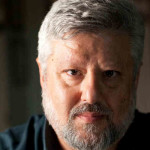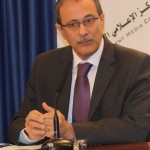Gershon Baskin relates to the question “Is peace between Israel and the Palestinians further away than ever?” by stating that best possible form of negotiation has been when the leaders of two sides are left to face each other in a room by themselves.
Click below to watch the video
The killing of a Jewish couple in front of their children in the occupied West Bank is the latest incident adding to heightened tensions between Israelis and Palestinians.
There has been violence between Israeli security forces and Palestinians over who could pray at the al-Aqsa Mosque compound in East Jerusalem.
Meanwhile, Palestinian and Israeli leaders continued their verbal sparring on the other side of the world at the United Nations General Assembly in New York.
Palestinian President Mahmoud Abbas says that Israel is increasingly ignoring the terms of the Oslo Accords.
But Israeli Prime Minister Benjamin Netanyahu told the UN that he rejects the allegations and welcomes the resumption of dialogue.
So is a peace deal further away than ever?
Presenter: Martine Dennis
Guests:
Gershon Baskin
He is a member of the steering committee of the Palestinian-Israeli Peace NGO Forum, a member of the Board of ALLMEP – the Alliance for Middle East Peace, a member of the Editorial Board of the Palestinian Israeli Journal, and a member of the Board of One Voice. Dr. Baskin is also a member of the Israeli Council for Peace and Security. He was a founding chairman of the progressive Synagogue Kehilat Kol Haneshamain Jerusalem where he served as Chairman for three years.
Ghassan Khatib
Ghassan Khatib is Vice President for Development and Communications and lecturer of Cultural Studies and Contemporary Arab Studies at Birzeit University. Previously, he served as director of the Palestinian Authority Government Media Center (2009-2012), Minister of Labor in 2002 and Minister of Planning (2005-2006), founded and directed the Jerusalem Media and Communication center. He was a member of the Palestinian delegation for the Madrid Middle East Peace Conference in 1991 and the subsequent bilateral negotiations in Washington from 1991-93. Khatib holds a PhD in Middle East politics from the University of Durham, and is author of Palestinian Politics and the Middle East Peace Process: Consensus and Competition in the Palestinian Negotiation Team.



